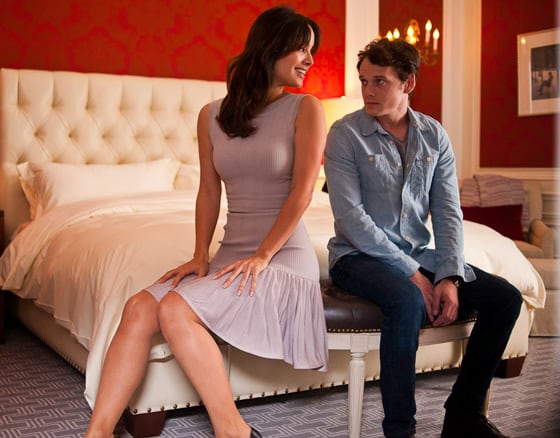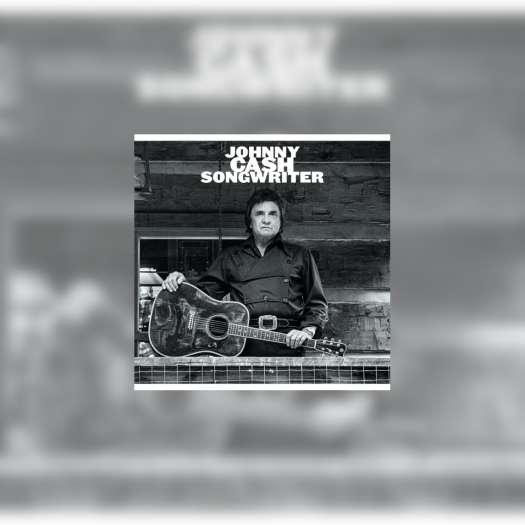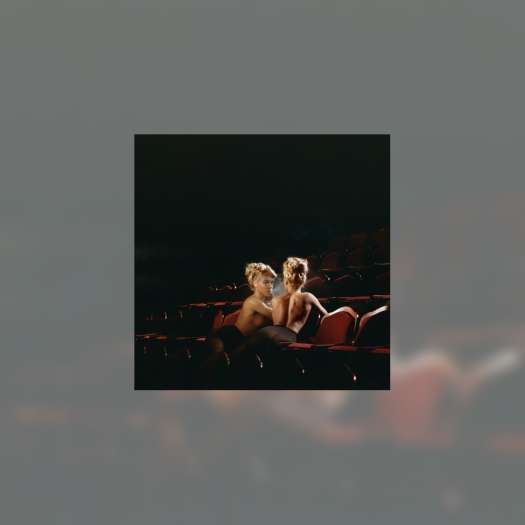Initially, Victor Levin's NYC-based romantic-drama, 5 to 7, fancies itself a sort of grounded, observational conversation drama. It's like a Before Sunrise for the sort of affluent, quasi-intellectual artists and dilettantes that inhabit the many recognizable settings that these puffed up narcissists of characters spend the duration of this film wandering around in.
But even that comparison and assessment is too fair. 5 to 7 is too morally self-conscious, too ironically juxtaposed and filled with superficial insights about the human experience to hold a candle to Linklater's work. It thinks it's about love or the practicality of such fancies in relation to ambition, but it's only partially so. It's a shell of work that wants to touch on truth without getting its hands dirty or ruffling the feathers of its audience. It's pretentious, yet dowdy and dull.
The title refers to the romantic boundaries set between 23-year-old Brian Bloom (Anton Yelchin), an aspiring writer (naturally), and Arielle (Bérénice Marlohe), a 33-year-old married mother of two and ex-model. While Brian is initially horrified by the conditions — Arielle and her husband have an arrangement wherein they can fuck whoever they want between 5 and 7 p.m. — his hormones eventually get the best of him. Though transparent — Brian is intrigued by Arielle's faux-existential disposition and lack of conventional morality, and she's excited by his youth (a youth she missed out on) — their relationship is presented as more than it is. Levin attempts to create connection through contradictions: Brian sees the promise and light in everything, whereas Arielle sees death, decay and finality (metaphorically speaking).
For most of the film, when Levin isn't awkwardly shifting to first-person perspectives or interrupting his own aesthetic to interject obvious visual metaphors, Brian and Arielle wander around to different places. They eat at restaurants, go to museums, stand around parks and occasionally pork each other in darkened rooms surrounded by shadows. Their discussions are about art, writing and cultural differences, but only in the shallowest of ways. In part, this is because the trajectory here is primarily that of maturation for Brian (the goal is to crush his idealism so he can be a good writer), but mostly it's that the script just isn't particularly strong.
One thing that Levin does well is handle the moral outrage of the setup. That Brian's parents are taken aback by his unique romantic entanglement and the entire situation — Brian is eventually put in a position to socialize with Arielle's husband and look after her kids — flips the bird to the manufactured, greeting card idea of romance that Western culture pretends to value. But Levin doesn't treat the situation with judgment and does point out the cultural differences between a good Jewish boy from New York and a chain-smoking French model. He also doesn't necessarily apologize for the situation (at least until the end, when Arielle explains her motivations). What he does is tiptoe around it and make the situation very clean by involving Arielle's husband and giving Brian enough distance and wide-eyed youthful sweetness (his tendency to focus on love rather than his writing is a cinematic pile of unrealistic dung) to make us believe he just doesn't understand what he's doing.
At the end of it all, the issue here isn't that the romantic component is sullied by heteronormative tradition and kneejerk outrage ("How dare a married woman with children want to feel desired?!"); it's that the development of the relationship and the situations surrounding it are so tepid and feigned. These characters are essentially affected tools that pretend to be above the social customs of their surroundings despite quietly adhering to the customs and expectations thrust onto them. They're empty people performing the same sort of pseudo-bohemian detachment and indifference as everyone else around them while indirectly complaining about alienation. It's quite painful to watch, and it's hard not to spend most of the runtime hoping that some sort of sincere truth will arise. Spoiler: it never does.
(Mongrel Media)But even that comparison and assessment is too fair. 5 to 7 is too morally self-conscious, too ironically juxtaposed and filled with superficial insights about the human experience to hold a candle to Linklater's work. It thinks it's about love or the practicality of such fancies in relation to ambition, but it's only partially so. It's a shell of work that wants to touch on truth without getting its hands dirty or ruffling the feathers of its audience. It's pretentious, yet dowdy and dull.
The title refers to the romantic boundaries set between 23-year-old Brian Bloom (Anton Yelchin), an aspiring writer (naturally), and Arielle (Bérénice Marlohe), a 33-year-old married mother of two and ex-model. While Brian is initially horrified by the conditions — Arielle and her husband have an arrangement wherein they can fuck whoever they want between 5 and 7 p.m. — his hormones eventually get the best of him. Though transparent — Brian is intrigued by Arielle's faux-existential disposition and lack of conventional morality, and she's excited by his youth (a youth she missed out on) — their relationship is presented as more than it is. Levin attempts to create connection through contradictions: Brian sees the promise and light in everything, whereas Arielle sees death, decay and finality (metaphorically speaking).
For most of the film, when Levin isn't awkwardly shifting to first-person perspectives or interrupting his own aesthetic to interject obvious visual metaphors, Brian and Arielle wander around to different places. They eat at restaurants, go to museums, stand around parks and occasionally pork each other in darkened rooms surrounded by shadows. Their discussions are about art, writing and cultural differences, but only in the shallowest of ways. In part, this is because the trajectory here is primarily that of maturation for Brian (the goal is to crush his idealism so he can be a good writer), but mostly it's that the script just isn't particularly strong.
One thing that Levin does well is handle the moral outrage of the setup. That Brian's parents are taken aback by his unique romantic entanglement and the entire situation — Brian is eventually put in a position to socialize with Arielle's husband and look after her kids — flips the bird to the manufactured, greeting card idea of romance that Western culture pretends to value. But Levin doesn't treat the situation with judgment and does point out the cultural differences between a good Jewish boy from New York and a chain-smoking French model. He also doesn't necessarily apologize for the situation (at least until the end, when Arielle explains her motivations). What he does is tiptoe around it and make the situation very clean by involving Arielle's husband and giving Brian enough distance and wide-eyed youthful sweetness (his tendency to focus on love rather than his writing is a cinematic pile of unrealistic dung) to make us believe he just doesn't understand what he's doing.
At the end of it all, the issue here isn't that the romantic component is sullied by heteronormative tradition and kneejerk outrage ("How dare a married woman with children want to feel desired?!"); it's that the development of the relationship and the situations surrounding it are so tepid and feigned. These characters are essentially affected tools that pretend to be above the social customs of their surroundings despite quietly adhering to the customs and expectations thrust onto them. They're empty people performing the same sort of pseudo-bohemian detachment and indifference as everyone else around them while indirectly complaining about alienation. It's quite painful to watch, and it's hard not to spend most of the runtime hoping that some sort of sincere truth will arise. Spoiler: it never does.




